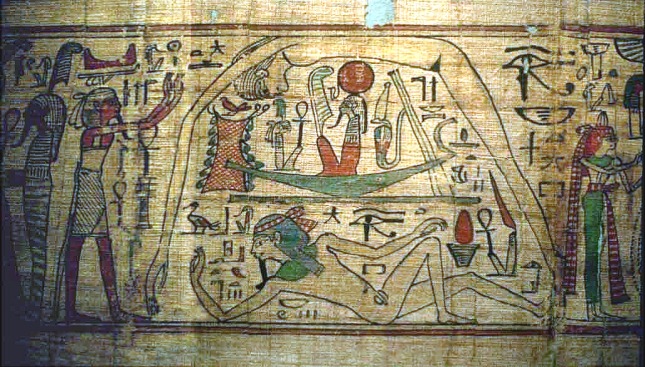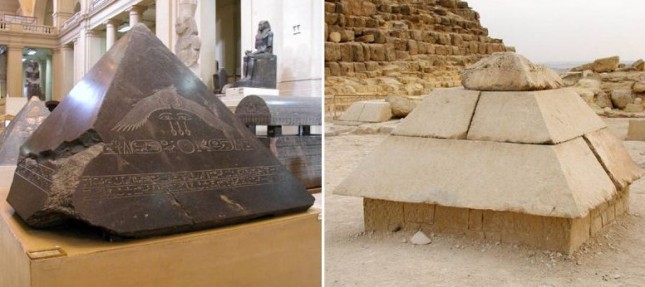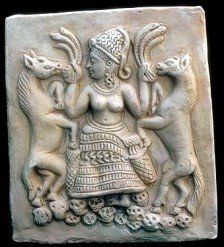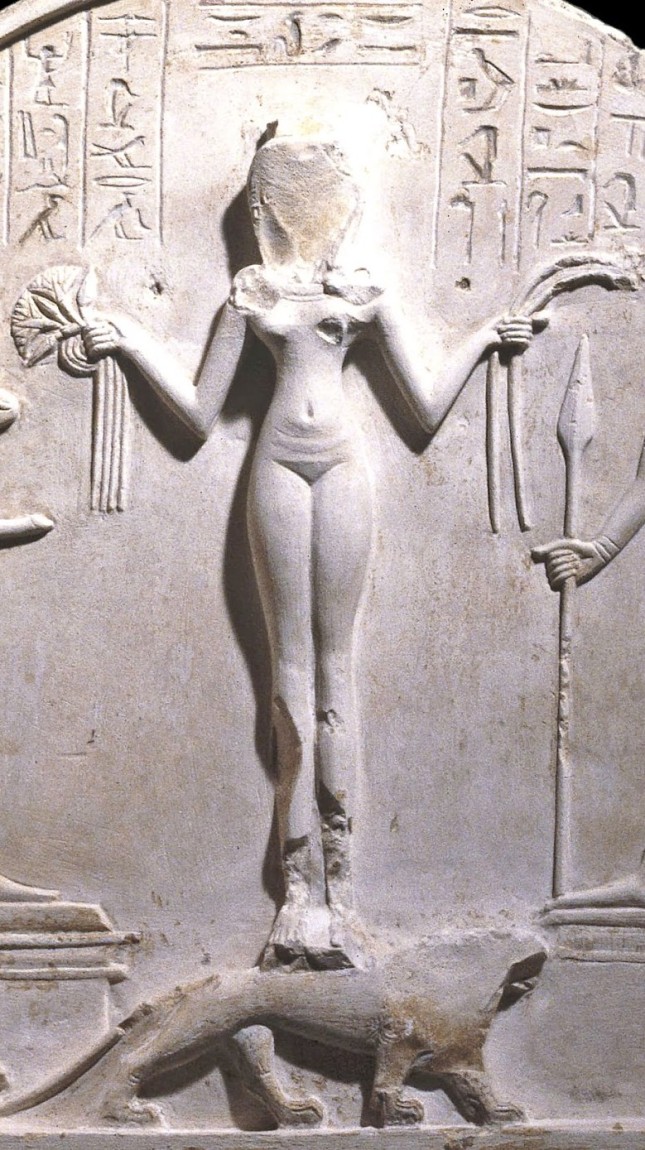The Disclaimer (For The Last Time)
It is almost somewhat laughable that we can so quickly finish up with India and now stumble our way into far distant lands like China. Admittedly, we cannot hope to do justice fully to each topic we touch on our path to discovering the origin of Man. I must make it clear that, in spite of what it may seem, in no way are we attempting an encyclopaedic overview of each and every nation, or of every sect of every belief system and/or religion. We must pick our way carefully through the mountainous fount we know as all the literature and physical evidence from the entire human history. I want us to be thorough, though, and here now is where you all can come in handy, perhaps with your suggestions have included that which might not be. Remember there is much more yet to come, so don’t email me yet about the Mormons or the Sikhs. In due time, perhaps, we will get there. My hope is that you readers of Truthopia may be provided herein with at least enough background information and other clues to begin, or more likely continue, your own paths of discovery.
I am happy to inform you that, if you have followed along from Truthopia’s beginnings to the present, you should by now begin to notice common strains among all the theories of the World, shared ideas of the same nature, made up, so to speak, in different dress or hairstyle. Real, undeniable differences exist in these doctrines we are studying, you can be sure, but I have come to believe even more sameness exists. So obvious is this one-ness of all humanity that it is, to me, a sad riddle why people continue to insist upon hating, harming, and killing one another for no personal reason, this under the dominion and blessing of their deranged leaders, patron saints or queer reckonings of their god’s alleged wants and desires. I am no pacifist, I can understand a good personal fight and a good national war – if such things may be called “good” at all – I cannot understand hating another entire race or creed simply because the individuals who believe in it speak another language, live on the other end of the globe, dress differently, eat different foods, or even have a different God.
Who cares, really, what you believe? Isn’t it what we do that makes us what we are? The other day I was watching a movie about, well to put it bluntly, neo-nazis versus neo-commies, a very good commentary on free speech that nevertheless failed to convince me that anything short of a provable lie (slander, libel) or direct physical threat (assault) should ever be disallowed. There should be no other limits to free speech. Anyway, in this film it was the “nazis” accused of hate, but it was also the nazis that were most peaceful, getting threatened, even punched in the face. When the nazis protested the removal of Confederate Civil War hero statues, for instance, it was the commies, the supposed do-gooders in this rendition, breaking all the windows, starting all the riots, calling all the names. What it means, and why it is relevant here, is it does not really matter what you say you are, or imagine yourself to be. Action, what you do, shows clearly what you are.
Ah yes the soapbox. All you have to do is take it upon yourself to try and do some unbiased, inclusive research about something simple, say, about the History Of America, or lima beans, never mind the search for Man’s origin as I am doing here, or try to dig up information about any single thing or issue seemingly beyond subjective bias, like maybe the ingredients in your child’s school lunch, to learn quickly the lesson that says it takes a sharp machete to hack through the amount of prejudice and shoddy scholarship that more often stifles than aids the pursuit of any real truth.
Typical School Lunch
CHICKEN NUGGETS: $0.30
COOKIE: $0.12
PEAS: $0.10
POTATO: $0.12
FRUIT: $0.15
MILK: $0.20
Hear me carefully, as in just trying to do this study we have been hindered at many turns by commentators and prior researchers of various merit who demonstrate a penchant to habitually either 1) repeat what they have heard about the subject, never even considering the original documents or artifacts, and what else those things might be, or 2) present or interpret what they see and find through the biases of their particular religions, worldviews, and, least understandable, prejudices. I am not talking about some psychological slips of which we are all guilty, neither about the milieu or set of inescapable conditions, or, to speak German, the limitations of our weltgeist of existence. I am talking about eyes that see correctly but minds which twist what they see so as to make that object or document or doctrine of the senses conform to what the mind already prior believed.
To put it another way (because I want to say these things once only), over the years I have become disheartened over the amount of shoddy scholarship and overall lack of anything near objectivity in science, religion, and history, and more am I disappointed about the amount of ambiguity, unsurety, slim statistical margins, and pious arrogance which goes into a large majority of the rigmarole peddled as “fact”. Dare to question one of these “unquestionable” facts – say as for the benefits of oh, a particular vaccine, or point out that we can NOT know the exact ingredients of most prescribed drugs because of patent law, and you are laughed at by some gaggle of geese who, in actuality, are much more parrot than geese.

As for our subject here, we have seen the assumptions science makes, we have seen the ambiguities involved with the dating of old objects, the speculative facts, the slim margin by which some things are science and others not. Progress is cited as proof of science’s grand efforts, but what progress we have achieved and how such progress is defined is not clear. Yes, in the past one or two hundred years we have made great technological advancements, but let’s not forget the Egyptians went from fragile mud brick huts to the Great Pyramid in about the same amount of time. As we have said, take away about a dozen or two great inventions since and we are no better than 3000 BC Sumerians. Another big assumption is when “Truth” is considered that which is “peer-reviewed”, a neither necessary nor sufficient condition for Truth, but whose popularity should be considered no wonder nor surprise, as parrots are most understanding of what comes from another parrot.
Perhaps it is because we no longer value philosophy and history, perhaps it is because real theology has died, having been replaced by fanaticism, I don’t know. What I do know is every war is usually supported by the “holy men” of every nation involved. We have to ask ,then, which god is this in love with war? Is it the followers of Ares or Mars? I see the continued invading and bombing of foreign countries over economic and ideological, at best, concerns. Which deity is this which condones such behavior? Is it Ahriman, or Beelzebub? Which politic adopts such hostilities as acceptable public policy, and allows the use of public funds to finance the weaponry and manpower? Is it a nice convenient right, left, nazism or communism…or rather, militarism, plutocracy, and oligarchy?
An atheist looks at the world and finds all the things that confirm his belief that there is no God, and a man of God, so-called, looks at the same world and finds all the things that confirm his belief that God exists. Muslims, Sikhs, Hindus, Christians, Jews, Buddhists and Taoists – they look out into the world through the prism of the qualities which distinguish them, and often, perhaps too often, they find evidence for what they believe in what they see. For me, there are many things that beckon my belief, and I am happy knowing the alternatives without having to choose, especially when the evidence makes no choice a clear or rational one. I think there is a virtue to being able to look out and see as the atheist or the believer without having to actually be either. The mistake we make is not in our choosing one alternative or the other, the mistake is becoming intolerant of those which we did not choose. In a sense, we walk through the Superstore of Knowledge, buy what we prefer, and rather than leave the rest for others who might like them, instead we decide the other stuff to be worthless and commit it to the flames. You can choose a belief system and still be objective only if you retain an open mind, and reserve a type of respect, for what you do not choose. Otherwise, you become an automaton, or human robot, not too good for society, anathema for anything to do with the search for the Truth.
I spill all this now because I have read recently several books about China, all of which describe the same people, often in the same places, as decidedly different. I understand subjectivity, after all, it is the grounds of any real objectivity. And writer’s license, well, I am a true libertine. But can no one say maybe “the tea I had here” was bad, rather than “all the tea in China” was lousy? Or “many people we met were very nice” rather than “all the people are like robots”? Not only do these authors disagree about many identical things about China, but they often have completely different impressions about the very same places. It is like wanting to go to China, and searching personal travel reports. In too many instances in these books it is clear that often the authors mistake what and who they experience for China in general. Similar logic was in play when the Americans found it necessary to actually use nuclear bombs on a more or less innocent civilian population because of disagreements and other problems with the Japanese military and government. In sum, a writer or researcher who is not objective cannot be a non-fiction writer. He may be whatever he wants to be, but if he does not tell the truth, he should be writing fiction.

The Egyptian Origin Of Man
While I do not want to spend too much time right now on the “old myths”, by which I mean those of Babylon, Akkad, Phoenicia, Ancient Greece, and the like, I do want to bring up at this time the origin of Man as understood by the Ancient Egyptians. This is partly because of the continued popularity of this culture and partly because it is the origin of many ideas which were to come later.
Of all the ancient cultures Egypt’s understanding of Creation is often cited as one of the most complicated, for the main reason that different times and places in Egypt had distinct, often very disparate ideas. Different cities incorporated their present “main” god into the explanations. This in mind, let’s begin with the now famous Book Of The Dead, as while it is not nearly the oldest Egyptian story, it is synonymous with all we know about the lands along the Nile:
The Book of the Dead, dating to the Second Intermediate Period, describes how the world was created by Atum, the god of Heliopolis, the centre of the sun-god cult in Lower Egypt.
In the beginning, the world appeared as an infinite expanse of dark and directionless waters, named Nun. Nun was personified as four pairs of male and female deities. Each couple represented one of four principles that characterized Nun: hiddenness or invisibility, infinite water, straying or lack of direction, and darkness or lack of light.
Atum created himself out of Nun by an effort of will or by uttering his own name. As the creator of the gods and humans, he was responsible for bringing order to the heavens and the earth. As Lord of the Heavens and Earth, he wears the Double Crown of Upper and Lower Egypt and carries the ankh, a symbol of life and a was sceptre, a symbol of royal authority.
According to the Pyramid Texts, written on the walls of pyramids, the creator god emerged from the chaotic darkness of Nun as a mythical Bennu bird(similar to a heron or phoenix). He flew to Heliopolis, an ancient city near Cairo, where, at dawn, he alighted on the Benben, an obelisk representing a ray of the sun. After fashioning a nest of aromatic boughs and spices, he was consumed in a fire and miraculously sprang back to life. The capstone placed at the top of an obelisk or a pyramid is associated with the Bennu. Called a pyramidion or the Bennu, it is a symbol of rebirth and immortality. (source)
Most interesting is that Atum creates himself out of nothingness (Nun) by “uttering his own name”. This is the Word we have spoken about much already, the granting of existence requiring such a naming process, even if it be only self-identification; it is the Word made flesh.

Ben-Ben Stones
But while this legend provides us the origin of the Creator, it does not yet tell us where Man came from. According to this myth, Man comes from the creator god Atum’s personal tears:
To the Egyptians, the journey began with the creation of the world and the universe out of darkness and swirling chaos. Once there was nothing but endless dark water without form or purpose. Existing within this void was Heka (god of magic) who awaited the moment of creation. Out of this watery silence (`Nu’) rose the primordial hill, known as the Ben-Ben, upon which stood the great god Atum (or, in some versions of the myth, Ptah). Atum looked upon the nothingness and recognized his aloneness and so, through the agency of magic, he mated with his own shadow to give birth to two children, Shu (god of air, whom Atum spat out) and Tefnut (goddess of moisture, whom Atum vomited out). Shu gave to the early world the principles of life while Tefnut contributed the principles of order.
Leaving their father on the Ben-Ben, they set out to establish the world. In time, Atum became concerned because his children were gone so long and so removed his eye and sent it in search of them. While his eye was gone, Atum sat alone on the hill in the midst of chaos and contemplated eternity. Shu and Tefnut returned with the eye of Atum (later associated with the Udjat eye, the Eye of Ra, or the All-Seeing Eye) and their father, grateful for their safe return, shed tears of joy. These tears, dropping onto the dark, fertile earth of the Ben-Ben, gave birth to men and women. (source)
As Wikipedia puts it, “One common feature of the [Egyptian] myths is the emergence of the world from the waters of chaos that surround it. This event represents the establishment of maat and the origin of life”. This should all sound familiar, these waters and this chaos, and humans being of the stuff of gods. Maat, the Egyptian concept meaning truth, order, and justice, that force which maintains the balance of things, worshiped as a goddess by that name in Egypt, is all but identical to the Sanskrit karma, the Arabic kismet, the Greek logos, and all terms equivalent to “Will Of God” or “Holy Spirit”.

Many scholars have written about the parallels, and even origins, of later religions and myths to be found in the Old Kingdom Egyptian stories. The legend about Ra sending his Hathor eye to punish the people, who almost all die in a giant deluge of blood, is a flood story nonetheless. That Ra steps in and gets Hathor drunk before she can kill every living human being again shows God’s “mercy” in sparing at least a portion of those He created in His Own image, a story in line with what has to be considered by now to be a universal flood, and those so many variations of it. One intriguing recent theory argues that just as Osiris has his Isis, and Zeus has his Hera, so does Yahweh, YWH, Jehovah, the God of Abraham also have a partner of the opposite sex. Asherah being the wife of God seems to come down to whether or not you believe the Sumerian creator god El is identical to YWH, or rather Anu. [n.b. To me, without a doubt, Asherah is identical to the “fertility goddesses” such as Inanna, Astarte, Freya, Gaia, and her namesake Ishtar, by the Greeks she became divided up into several goddesses like a Rhea-Demeter-Aphrodite splitting of duties; she is known to us, most accurately portrayed, as Nature, or Mother Nature.]
The point is that should we look with fresh eyes at even our own present understanding of the meaning of God, we might find more co-incidents than coincidence and realize there is behind them all a universal message, a pervasive common search, a fairly equivalent understanding, and a singular morality.
There is much more to know about the Egyptian ideas concerning the origins, structure and ordering of the Universe, not directly on point here, but which I encourage everyone to pursue.
OK then, to the Chinese next time! Let’s see for ourselves what they might know about the origin of Man.







monarc7
January 6, 2010 at 3:29 pm
Are you sure if everyone had a different belief, choice, there can even be a we? Are you sure it is when we become intolerant that is the mistake?
But I like that you tell off those subjective people. Those who think that Truth is universal agreement, I just can’t understand.
truthopia
January 7, 2010 at 1:09 am
Thanks for the comment. I think there is always a “we”, wouldn’t you say, whether we like it or not? If we eat and toast together, we are “we”; if we shoot at each other, still we are “we”.
I think what you are getting at regards consensus. “Truth” goes by many definitions, for example for the pragmatists it is what works, for the logician it is what follows from certain arguments, for the Christian it is the Holy Writ. For me, it is a combination of things including common sense, good science, repeatability, and timelessness, as I discussed a chapter or two ago.